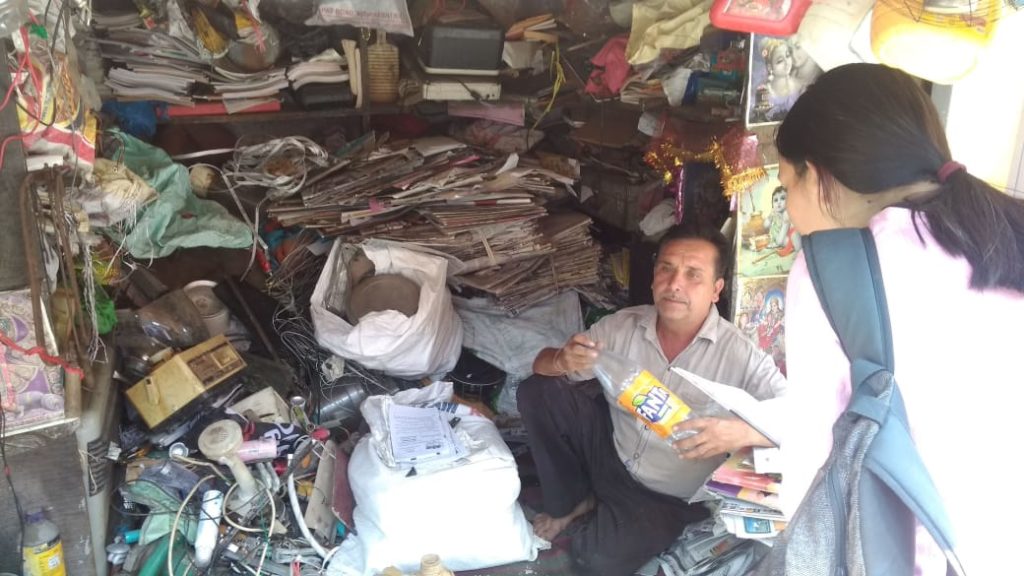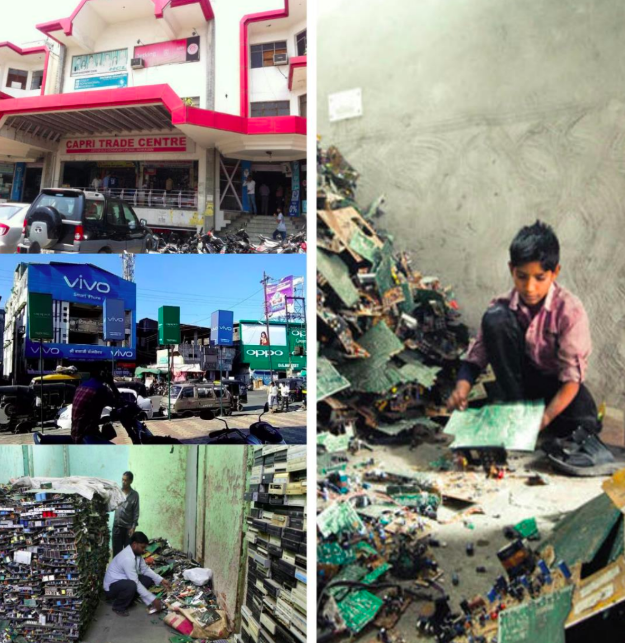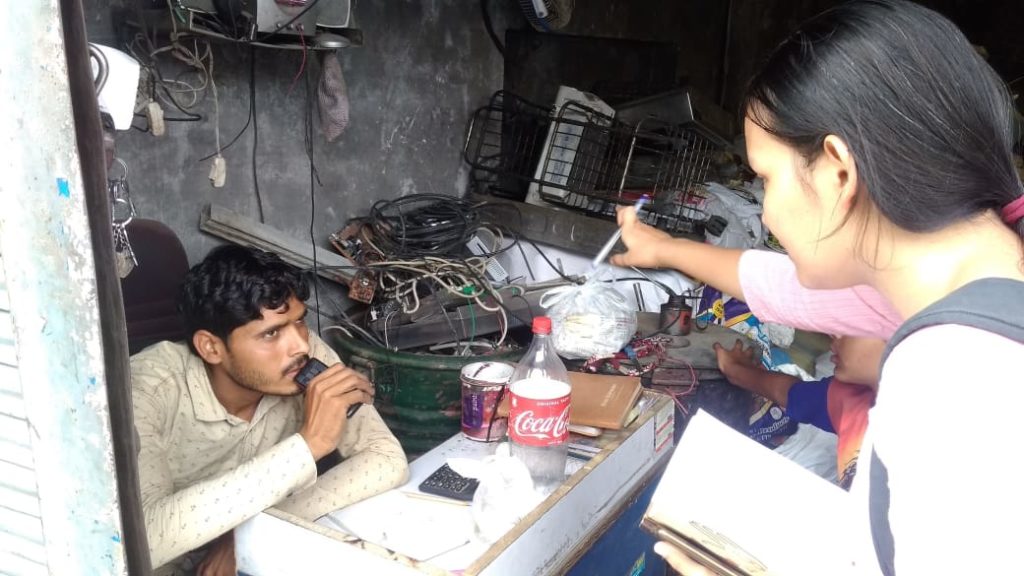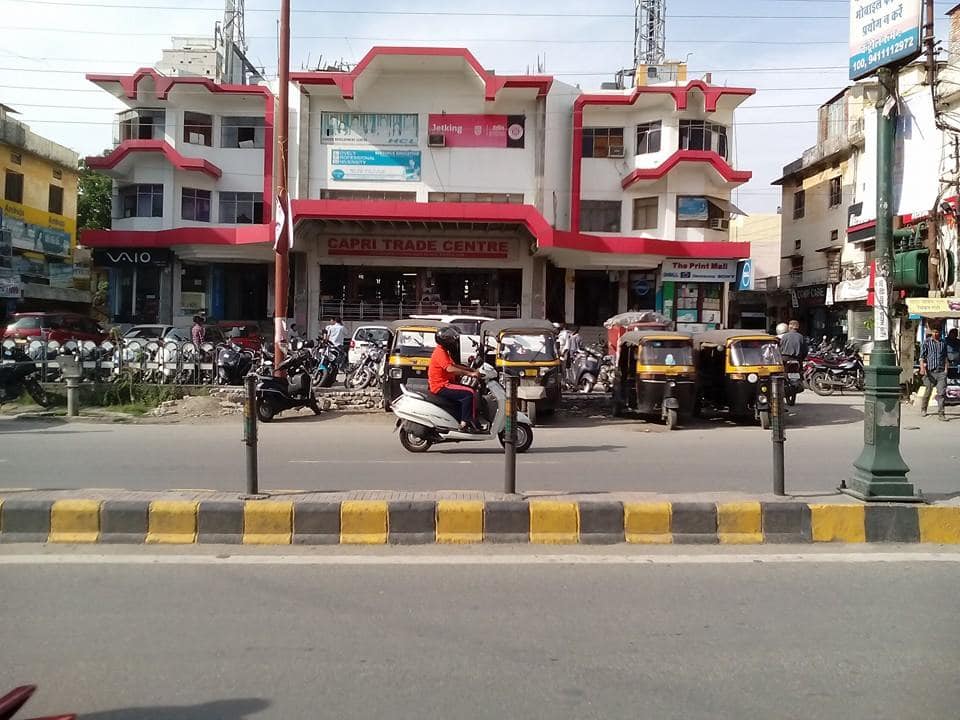Dehradun: Gati Foundation, environmental action and advocacy group conducted an extensive study on e-waste management in Dehradun. The study focused on three issues: e-waste management practices at the authorised mobile dealers/centers; citizens’ awareness on e-waste management and informal sector of e-waste recycling in the city. The study visited 14 authorised mobile centers of one of the largest mobile companies in India; conducted an online interviews with more than 130 people; and interacted with city-based informal recyclers. The research team visited the authorised mobile centers at Rajpur Road, Jakhan, Dilaram, Ballupur and GMS road in the city.

The findings of the study revealed shocking state of affairs with respect to e-waste management in the city. It was found that a number of authorised mobile dealers in the city are openly flouting the legal norms enshrined under the E-waste Management Rules 2016 notified by the Government of India (GoI). 94% of the mobile dealers do not have a separate dustbin for e-waste disposal as mentioned under rule 7(1). 88% of the mobile dealers are not aware of the E-waste (Management) Rules 2016, which governs the entire domain of e-waste management in the country. 63% of the mobile dealers are not even aware of the term ‘e-waste’. As per rule 5(1)(d), it is mandatory for mobile dealers and brand owners to roll out buyback scheme or deposit refund scheme in order to manage the e-waste. Surprisingly, not even a single mobile dealer is aware of the buyback scheme or does not have a system for managing the deposit refund scheme. Most of the mobile dealers are disposing of their e-waste by selling it to a local Kabadiwala which is a violation of rule 7(3) which talks about handing over the e-waste to authorised and registered dismantlers or recyclers.
“E-waste rules pose a strict liability on brand owners, dealers and recyclers engaged in e-waste management. The mobile dealers are found to be openly flouting the rules. It is a grave danger to the environment as the informal ecosystem has the potential of causing serious pollution to soil, water and air. Companies must facilitate a complete solution to manage the e-waste getting generated in our cities post their product usage. Legal principle of extended producer responsibility (EPR) under E-waste (Management) Rules 2016 makes it mandatory for companies to take care of the e-waste”, says Anoop Nautiyal, Founder of Gati Foundation.
The second part of the study focussed on the citizen survey. 90% of the citizens are not aware of any registered e-waste recycler in the city. 9 out of 10 respondents agreed that companies must take responsibility for the e-waste generated post-consumer use of their products. 50% of the citizens are disposing of e-waste by selling it to a local Kabadiwala. 8 out of 10 respondents say that they prefer buying a new phone instead of buying a second hand or refurbished device. There remains an extremely low awareness regarding the E-waste (Management) Rules 2016 amongst the citizens of the city. Out of 10, only 2 are aware about the rules. Mobile phones and related accessories remain the most preferred choice for e-waste generation. Throwing e-waste in the dustbin remains the most preferred choice of disposing of e-waste.
“The infrastructure to handle electronic waste in the city is in a critical state right now. Role of companies is crucial here as they can help in executing pan-city e-waste awareness and collection drives which can help in curbing the problem. State agencies can be mobilised to act against the illegal units engaged in dismantling of e-waste inside the city, causing environmental pollution”, said Rishabh Shrivastava, Lead – Public Policy and Communications, Gati Foundation.
The study also highlighted that a large number of illegal units in the city are engaged in unscientific dismantling or recycling of the e-waste, contaminating the soil and water bodies in the region. Most of the e-waste from these illegal units is being transported and dumped in neighbouring cities of Uttar Pradesh like Saharanpur and Moradabad, revealed the study. Based on the findings of the study, Foundation has sent a legal submission to mobile companies and is working to implement strategies to curb the problem of e-waste in Dehradun.
The opinions, beliefs and viewpoints expressed by authors, news service providers on this page do not necessarily reflect the opinions, beliefs and viewpoints of Hill Post. Any views or opinions are not intended to malign any religion, ethnic group, club, organization, company, or individual.
Hill Post makes no representations as to the accuracy or completeness of any information on this site page.






